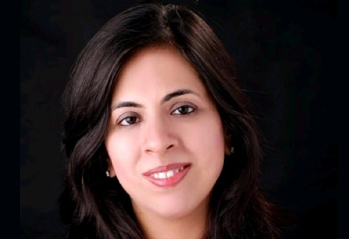
Welcomed Structural Reforms: Healthcare Leaders React to Union Budget 2025
By: WE Staff
The Union Budget 2025 presented by Finance Minister Nirmala Sitharaman on February 1, listed several key initiatives and schemes boosting the Indian economy. The budget prioritized tax exemptions for middle-class employees, women's entrepreneurship, startup-up initiatives, agri-tech welfare and education along with healthcare which is a major concern in today's climate.
This year, healthcare and pharma received ample focus with a plethora of initiatives being announced for the sector. In a positive move, the Union Budget 2025 aims to improve affordability and accessibility by exempting 36 life-saving drugs from Basic Customs Duty, adding 37 new medicines, and 13 patient assistance programs. The Production Linked Incentive scheme for pharmaceuticals received INR 2,445 crore strengthening domestic manufacturing. In order to provide nutritional support to over 8 crore children, 1 crore pregnant and lactating mothers, and 20 lakh adolescent girls in aspirational districts, it proposed Saksham Anganwadi and Poshan 2.0 programmes. The budget also lists other key programmes promoting India's healthcare sector.
Let us hear what the Top Women Leaders from the Healthcare sector have to say to help us better understand the initiatives and programmes presented by the Union Budget 2025.
Read on to know what Narayana Health’s Sandhya Sriram; ManipalCigna Health Insurance’s Sapna Desai; and Supriya Lifescience’s Saloni Wagh, have to say.
Sandhya Sriram, Group Chief Financial Officer - Narayana Health

The Union Budget 2025 has maintained a cautious approach towards healthcare, with limited
structural reforms to address the sector’s longstanding challenges. While complete exemption of
customs duties on select life-saving medicines is a step in the right direction, broader measures to improve affordability and accessibility—such as streamlined GST input credit for healthcare services, reduction of import duties on medical equipment, and incentivized infrastructure development—remain largely unaddressed. The need for long-term financing support, particularly linked to ESG goals, continues to be an area requiring urgent attention.
That said, key initiatives such as extending broadband connectivity to primary health centers under the Bharat Net project and setting up 2,000 daycare cancer centers in district hospitals in 2025 mark important steps toward strengthening rural healthcare and specialized treatment accessibility. The establishment of a Center of Excellence in Artificial Intelligence for Education, building on the AI Centers for Health and Sustainable Cities announced in 2023, signals a growing emphasis on technology-driven advancements in the sector.
In a significant relief for patients, the full exemption of basic customs duty on 36 life-saving drugs and medicines, along with a concessional rate on six others, will help reduce treatment costs for those battling cancer, rare diseases, and severe chronic conditions. This measure, alongside the expansion of healthcare access for gig workers under the PM Jan Arogya Yojana, demonstrates a targeted approach to addressing affordability concerns.
However, addressing claim disbursement delays and incentivizing private insurance participation remain critical gaps in ensuring financial protection against rising medical costs. 100% FDI in Insurance will enable substantial foreign investments in the sector enhancing competition and improving accessibility to insurance across the country.
While the budget takes incremental steps, a more comprehensive approach—one that strengthens the healthcare and insurance ecosystem through structural policy reforms—remains critical. Addressing these gaps will be key to ensuring quality healthcare is both accessible and financially sustainable for all.
Sapna Desai, CMO - ManipalCigna Health Insurance Company Ltd

-Your reaction to the overall budget
‘Nari’ has been one of the key focus pillars for our government and this is reflected well in this year’s union budget. The Union Budget takes a strong step toward gender equity with an increased allocation of ₹3 lakh crore for women-focused initiatives. This marks a significant increase in the government’s commitment to fostering financial independence and workforce participation for women across sectors. Measures like skill development programs and expanded financial support will open up newer opportunities for women to contribute towards the growth of this nation.
Also, setting up a new Fund of Funds for start-ups with an expanded scope and a fresh contribution of Rs 10,000 crore will give new wings to women entrepreneurs.
- Specifically budgetary measures or initiatives that you feel will especially benefit women in the workforce or leadership position
Key initiatives such as better credit access for women entrepreneurs and enhanced market opportunities for women-led enterprises will drive toward higher female representation in leadership roles. Additionally, provisions for working women hostels will support work-life balance, ensuring that more women remain in and advance within the workforce. These measures are crucial in strengthening women’s roles across industries, including insurance and healthcare.
-How will these budgetary announcements influence the future of your respective industry, and the larger Indian business landscape
Financial independence will enable more women to make informed decisions about long-term security, including health insurance. As health experts, we recognize the pivotal role women play in financial planning and remain committed to supporting their journey toward financial and health security.
Saloni Wagh, Managing Director, Supriya Lifescience Ltd.

“The Union Budget 2025 – 26 continues to build upon India’s growth story by focusing on the Garib, Youth, Annadata, and Nari, making sure that the four pillars of the economy are well taken care of. Committing to women's empowerment alongside better health care is very significant, and the Saksham Anganwadi and Poshan 2.0 schemes will support nutrition for mothers, children, and adolescent girls. These initiatives will go a long way in making India a healthier nation.
The daycare cancer centres in the district hospitals will be the most beneficial announcement as they ensure that people all around the country will have easy and timely access to cancer care. Further, the inclusion of 36 life-saving drugs into the full customs duty exemption and the concessional rates for others will aid patients suffering from cancer, rare diseases, and chronic conditions. Strengthening the Indian medical economy and making vital medicines more affordable will have a positive impact on society.
A customized tariff structure will aid the pharmaceutical sector in making manufacturing and the export of medicines easier, putting India in a stronger position as a pharmaceutical superpower. The government’s intention of lowering the ‘Ease of Doing Business’ and the new manufacturing mission under ‘Make in India’ will also boost development and further aid the innovation.
This budget strengthens India’s consumption story as well as further inclusion. As we step forward into a ‘Viksit Bharat’, the areas of healthcare, women, and industrial expansion will greatly influence the tomorrow.”


.jpg)



